Many U.S. cities are plagued by different natural disasters: floods, hurricanes, thunderstorms, and so on. Of all these disasters, flooding is the most common one, affecting most cities in the United States. Not only is it the most common but it is also the most expensive disaster. In this post, we’ll answer the question of which U.S. cities flood the most and consider how safe they are.
According to some estimates, flooding has cost the the nation more than $850 billion since 2000. Flooding is a national problem. Even for cities not directly affected by storms, the aftermath of a massive flooding effect will still be felt in some ways. Of course, a few cities are more directly affected by others. Read on to find out the cities most affected by flooding in the United States.
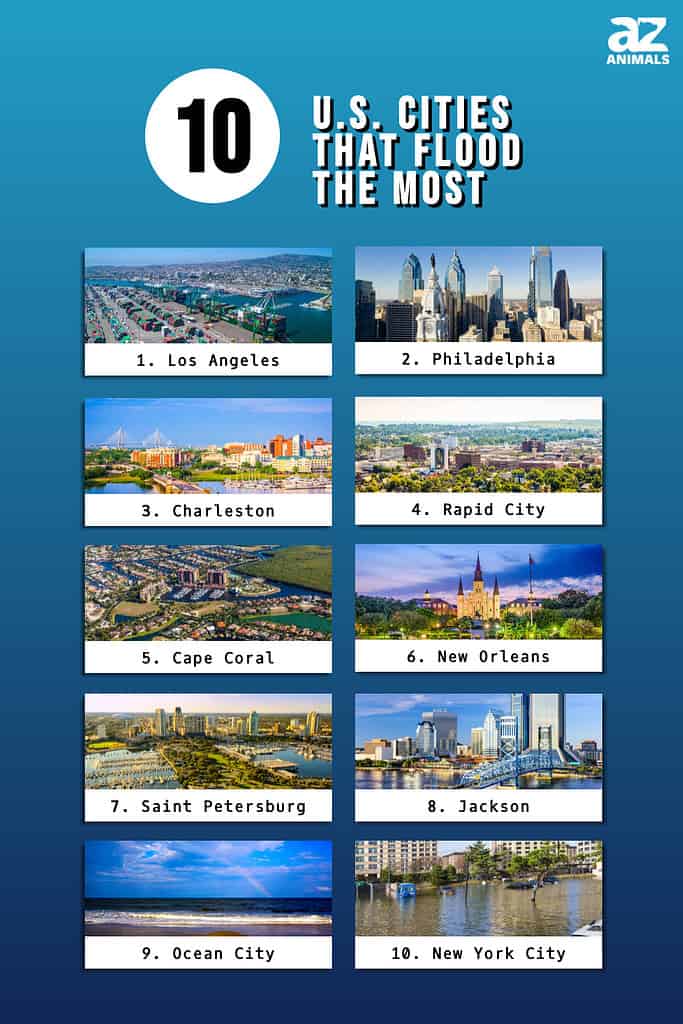
1. Los Angeles, California
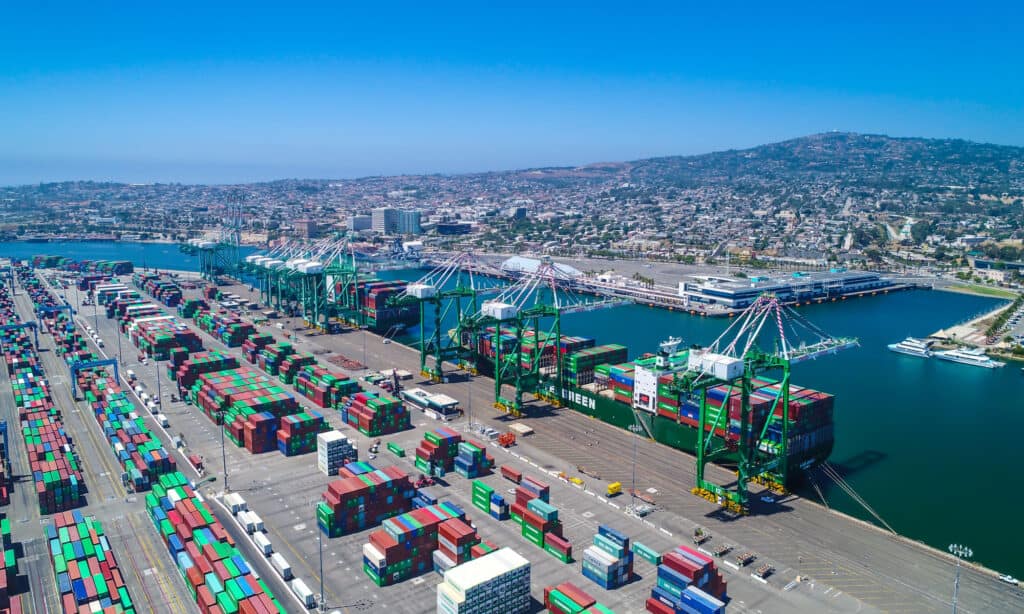
Los Angeles is one of the most flood-prone cities in California.
©Kirk Wester/Shutterstock.com
Virtually every single county in California has been declared a flood disaster area several times in the past. However, Los Angeles is one of the most flood-prone cities in the state. Up to 20% of all properties in the city are at risk of a major flood disaster. As one of the major urban areas in the state, poor drainage systems in this low-lying coastal area make it quite prone to flooding.
2. Philadelphia, Pennsylvania
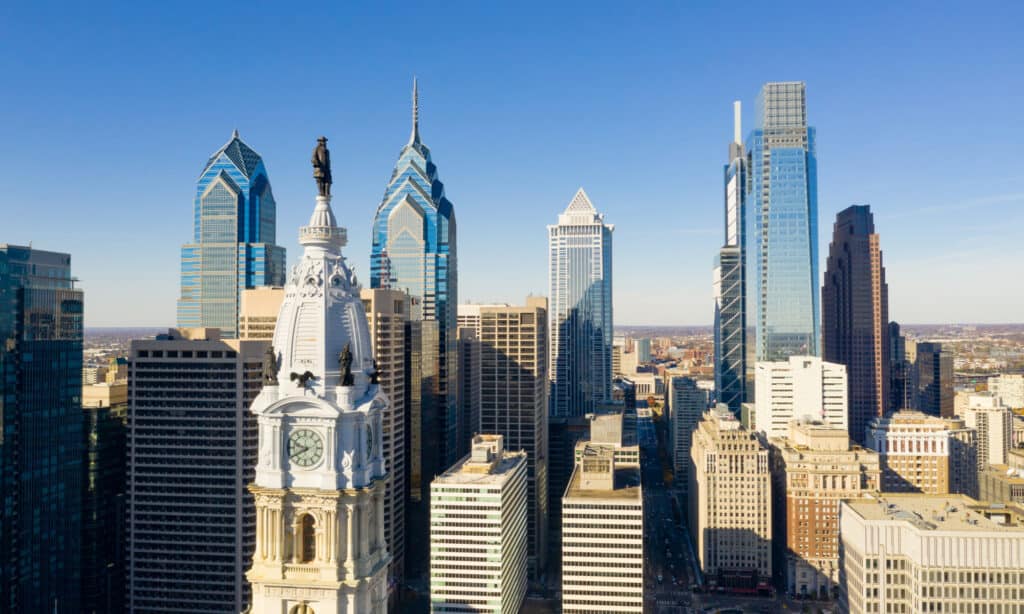
Up to 10% of properties in Philadelphia are at risk of flooding.
©Real Window Creative/Shutterstock.com
High tides and storm surges are the leading causes of flooding in Philadelphia. Riverine flooding may also occur due to rivers overflowing their banks during hurricanes and tropical storms. Up to 10% of properties in Philadelphia are at risk of flooding. With climate change causing hotter and wetter weather in Philadelphia, the potential for flooding is expected to increase.
3. Charleston, South Carolina
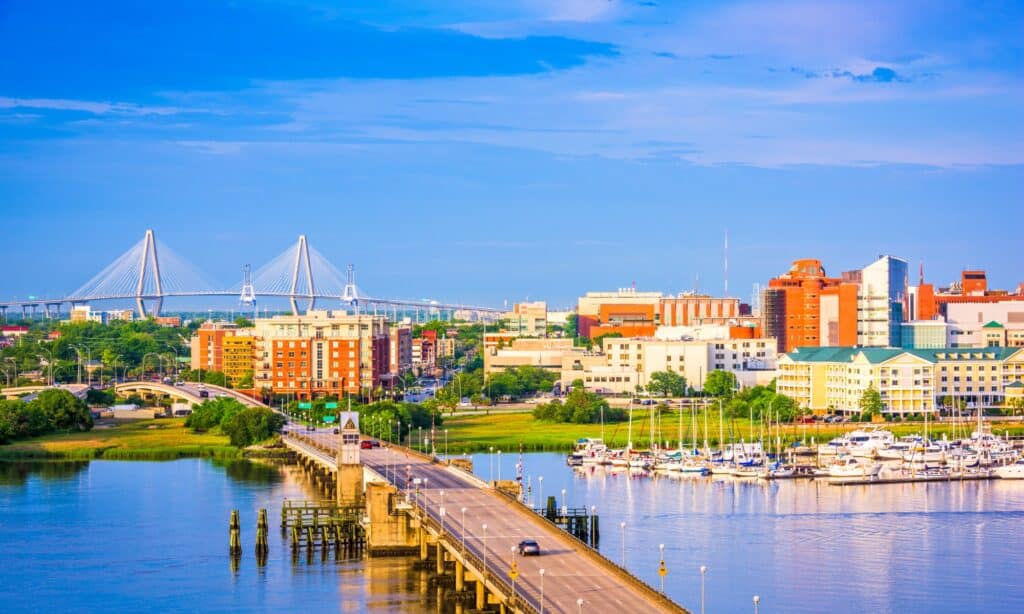
Charleston is located in a low-elevation area near the Atlantic Ocean.
©iStock.com/Sean Pavone
Unlike other places where flooding is seasonal, the natural geography of Charleston is what makes the area more prone to flooding. Charleston is located in a low-elevation area near the Atlantic Ocean. Most flooding disasters in this city are caused by rising tides, storm surges, and heavy rainfall. Up to 59% of all properties in Charleston are at risk of flooding.
4. Rapid City, South Dakota
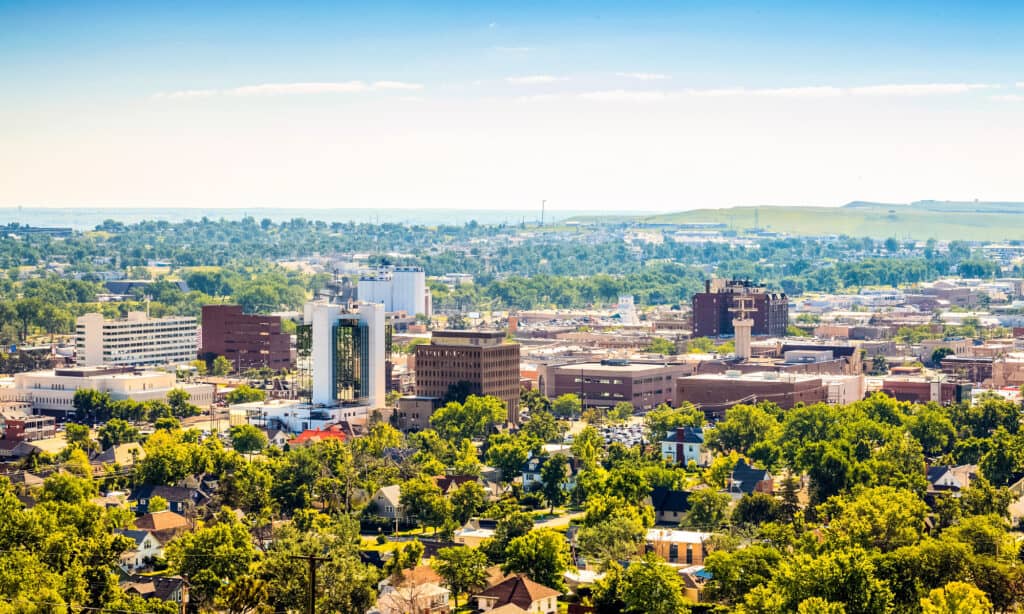
When Rapid Creek floods, it floods Rapid City right along with it.
©iStock.com/EunikaSopotnicka
Rapid City is one of South Dakota’s most populous cities. It is located near Rapid Creek, which lends the city its name. When this river floods (which happens quite frequently), it floods the city right along with it. Other notable rivers in South Dakota, such as Missouri and Big Sioux Rivers, also cause flood disasters in cities like Sioux Falls and Pierre. Up to 18% of all properties in Rapid City are at risk of flooding.
5. Cape Coral, Florida
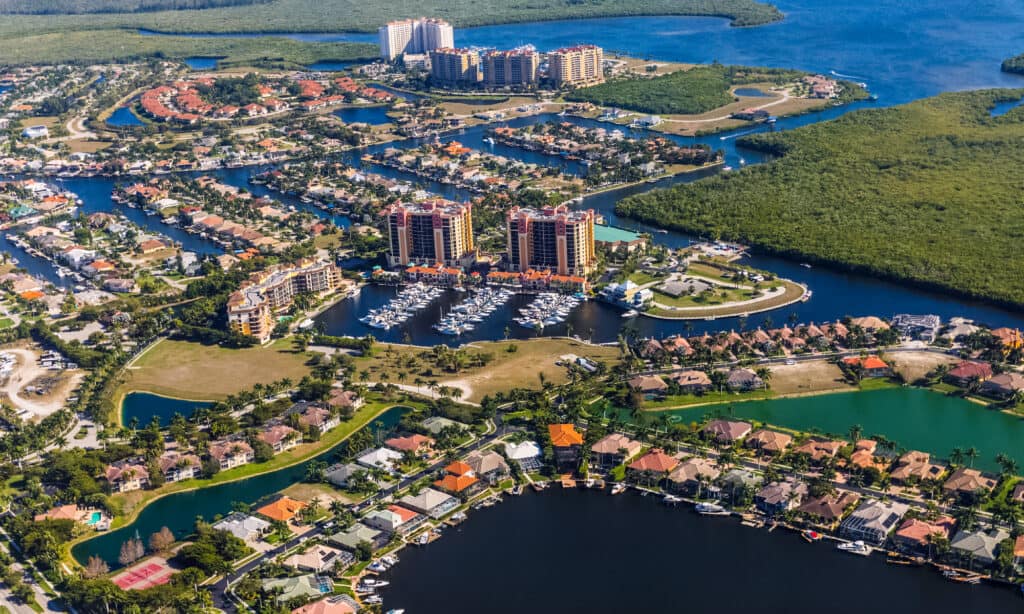
Cape Coral has more than 400 hundred miles of canals dedicated to waterfront living.
©Nadezda Murmakova/Shutterstock.com
Cape Coral is one of Florida’s most flood-prone cities, with up to 86% of all properties in the state susceptible to flooding. In terms of land area, Cape Coral is roughly the size of Washington, DC. However, the city has more than 400 hundred miles of canals dedicated to waterfront living, making it one of the most flood-prone cities in the world. The two main factors responsible for the frequency of flooding in this Florida City are storm surges and heavy rainfall.
6. New Orleans, Louisiana
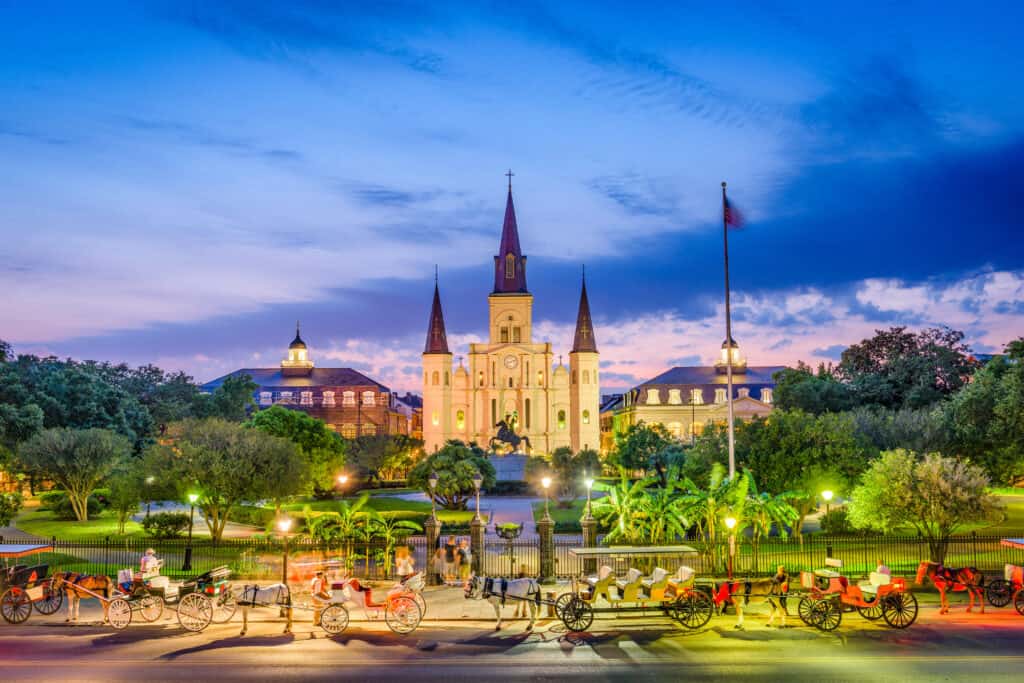
Hurricane Katrina confirmed New Orleans as one of the most flood-prone cities in the country.
©Sean Pavone/Shutterstock.com
One of the most notable flooding events in American history was the flooding of New Orleans after Hurricane Katrina hit the city and other parts of the country in August 2005. The nightmarish event confirmed New Orleans as one of the most flood-prone cities in the country. But while crazy weather events like gulf coast hurricanes are partly responsible for flooding in the city, the presence of the Mississippi River is another major contributor. The dumping point of the Mississippi River in this region is the largest drainage basin of any river in North America.
7. Saint Petersburg, Florida
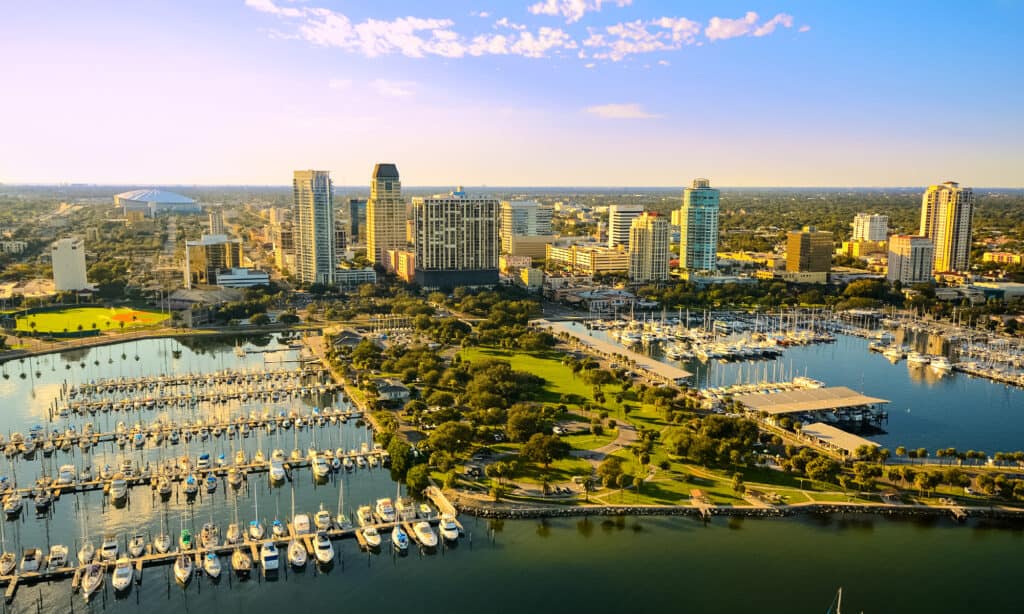
Flooding is quite persistent in Saint Petersburg and may cause damage to public and private utilities.
©iStock.com/SeanPavonePhoto
During seasons of tropical storms and heavy downpours, flooding is a major concern for citizens of Saint Petersburg, Florida. As one of the flood-prone coastal neighborhoods of Florida, flooding is quite common in Saint Petersburg. All houses in this part of the state are at risk of flooding. Most cases are not catastrophic. However, flooding is quite persistent and may cause damage to public and private utilities over time.
8. Jackson, Mississippi
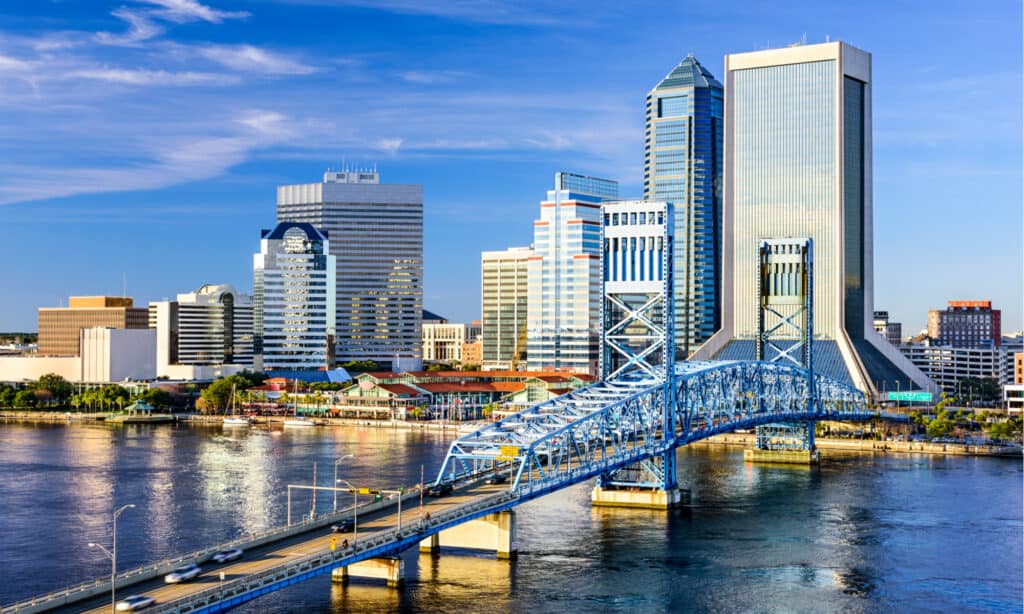
Pressure from water causes periodic river floods in Jackson and surrounding cities in Mississippi.
©ESB Professional/Shutterstock.com
The city of Jackson and other cities in Mississippi are at a high risk of flooding caused by the Mississippi river and its streams and tributaries overflowing their banks. The Mississippi River basin is one of the largest drainage basins in the world, and Jackson is located close to the most narrow point of this river’s funnel. Despite having a sprawling network of levees, pressure from water causes periodic river floods in this part of the country.
9. Ocean City, New Jersey
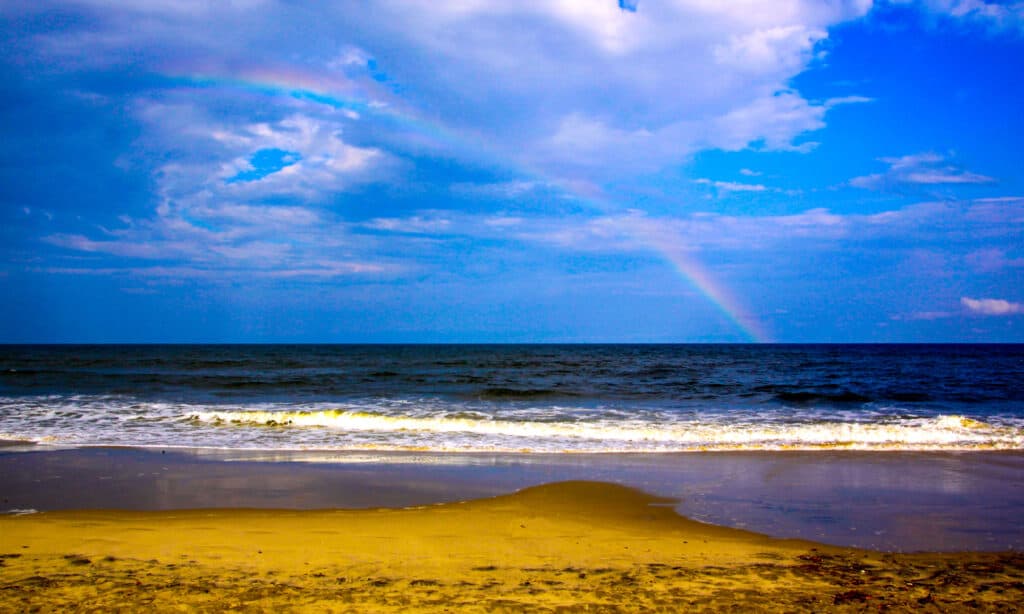
Flooding in Ocean City is often caused by rising ocean and bay waters during hurricane season.
©iStock.com/patti melfi
Ocean City, New Jersey, is located within a floodplain. The area is quite prone to severe flooding. In fact, the entire island is likely to get flooded at some point. Ocean City flooding is often caused by rising ocean and bay waters during hurricane season or other types of high-tide storms. Occasionally, lesser flooding may occur due to rainstorms and high lunar tides. Despite efforts to improve flood protection, it is virtually impossible to completely prevent Ocean City from getting flooded.
10. New York City, New York
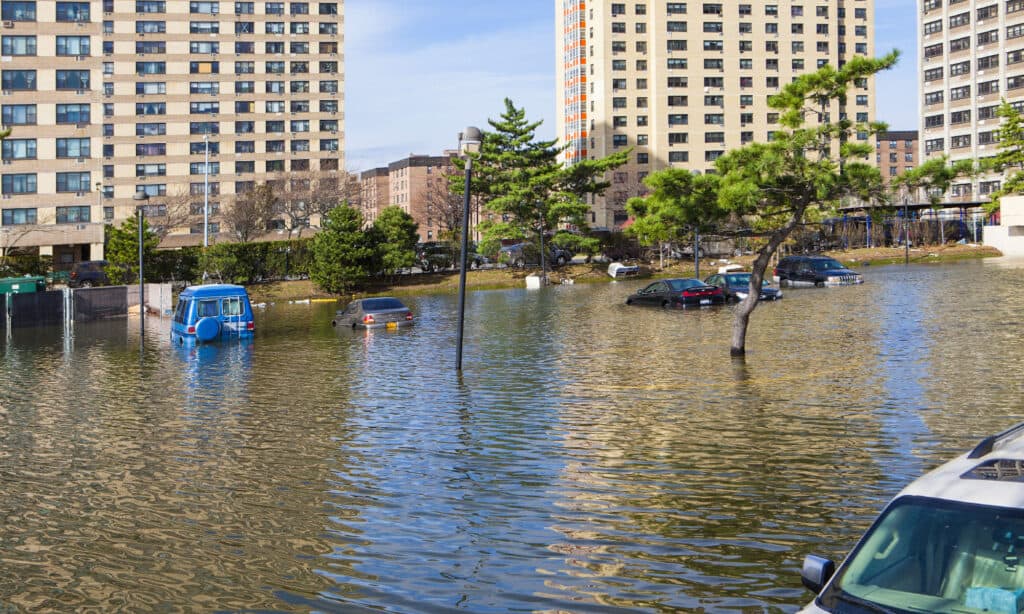
New York City’s poor drainage system is one of the main reasons flooding is a severe problem.
©MISHELLA/Shutterstock.com
New York City, alongside the entire New York State, is prone to flooding from coastal surges. The city is particularly susceptible to flooding during hurricane season and other severe storms. As a predominantly urban area, a poor drainage system is one of the main reasons flooding is a severe problem. Also, four out of the five boroughs of NYC are islands. This makes the city quite prone to rising water levels.
Summary of 10 U.S. Cities Flood the Most
Here’s a recap of the 10 cities in the United States most prone or vulnerable to flooding.
| Rank | City | State |
|---|---|---|
| 1 | Los Angeles | California |
| 2 | Philadelphia | Pennsylvania |
| 3 | Charleston | South Carolina |
| 4 | Rapid City | South Dakota |
| 5 | Cape Coral | Florida |
| 6 | New Orleans | Louisiana |
| 7 | Saint Petersburg | Florida |
| 8 | Jackson | Mississippi |
| 9 | Ocean City | New Jersey |
| 10 | New York City | New York |
Conclusion
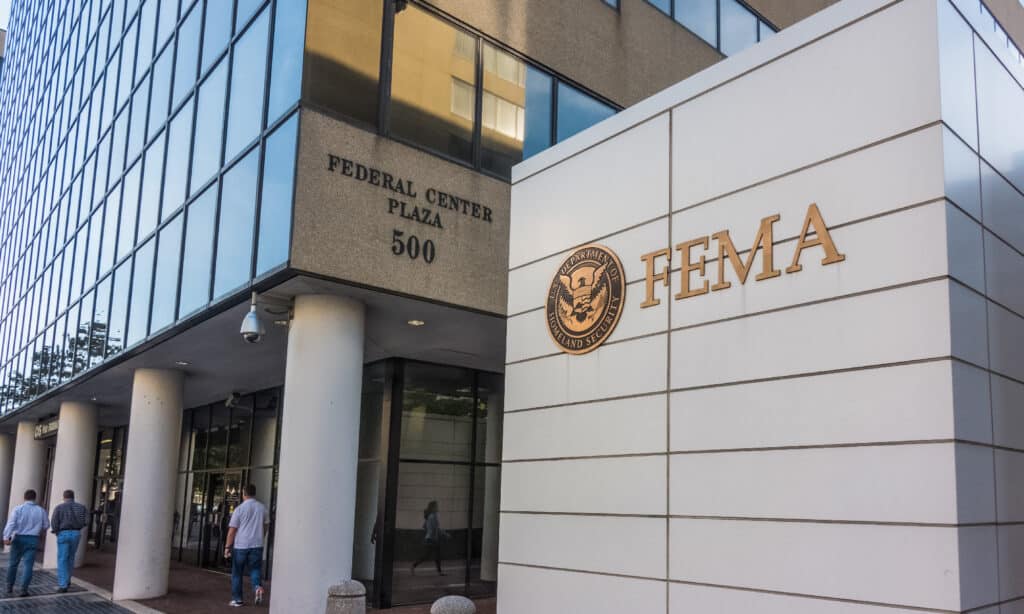
©Bob Korn/Shutterstock.com
The Federal Emergency Management Agency (FEMA) makes it a duty to constantly remind citizens that “anywhere it can rain, it can pour.” So, even though some states are at more risk than others, no one is entirely safe from floods or other natural disasters.
The photo featured at the top of this post is © Chones/Shutterstock.com
Sources
- Andrew Lisa, Available here: https://stacker.com/stories/4376/cities-highest-flood-risk-every-state
- , Available here: https://insurify.com/insights/most-vulnerable-cities-to-flooding/
Thank you for reading! Have some feedback for us? Contact the AZ Animals editorial team.






